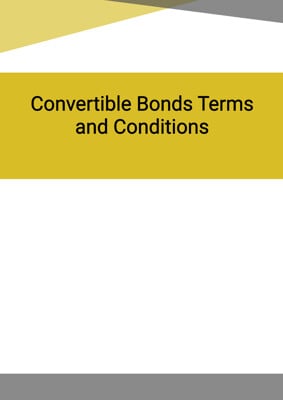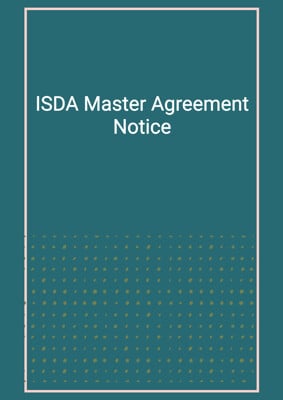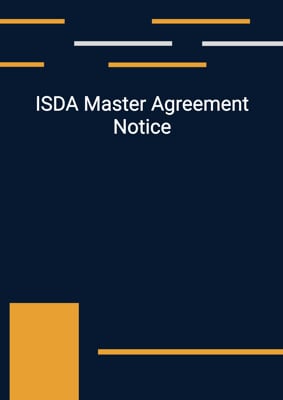How to Tailor the Document for Your Need?
01
Create Document
Click "Create Document" button and the document will be prepared with your account details automatically filled in.
02
Fill Information
Please fill in any additional information by following the step-by-step guide on the left hand side of the preview document and click the "Next" button.
03
Get Document
When you are done, click the "Get Document" button and you can download the document in Word or PDF format.
04
Review Document
Please review the document carefully and make any final modifications to ensure that the details are correct before publication / distribution.
Document Preview
Document Description
The document is a debenture agreement between a creditor and a debtor. It is important because it establishes the terms and conditions of the debtor's obligation to pay or discharge all money and liabilities due to the creditor. The document contains several sections, each serving a specific purpose.
Section 1: Definitions
This section provides definitions for key terms used throughout the debenture agreement, such as assets, floating charge assets, intellectual property, intellectual property rights, land, receivables, receiver, secured sums, and securities.
Section 2: The Debtor's Covenant to Pay
This section outlines the debtor's obligation to pay or discharge all money and liabilities owed to the creditor. It covers the debtor's liability for both current and future debts, as well as any interest, commission, fees, charges, costs, and expenses incurred in relation to the debtor's affairs.
Section 3: The Charges Debtor Creates
This section details the charges created by the debtor in favor of the creditor. It includes a legal mortgage over land, a fixed charge over specific assets, and a floating charge over all remaining assets. The debtor is required to deposit title deeds, execute necessary documents, and follow instructions to perfect the charges.
Section 4: Collecting Receivables
This section requires the debtor to collect and realize all receivables and pay the proceeds into a designated bank account. The debtor is prohibited from assigning or waiving its rights in receivables without the creditor's consent.
Section 5: Negative Pledge and Other Restrictions
This section restricts the debtor from creating any fixed or floating security over its assets or disposing of its intellectual property rights without the creditor's prior written consent.
Section 6: Further Assurance
This section obligates the debtor to execute any additional documents required by the creditor to secure the payment of the secured sums or perfect any fixed security over the assets.
Section 7: Continuing Security
This section states that the debenture remains a continuing security in favor of the creditor, regardless of any settlement of account or other matters. It does not prejudice any other rights, remedies, or securities the creditor may have.
Section 8: Insurance
This section requires the debtor to insure all insurable assets against loss or damage and maintain other insurances as required by the creditor. Failure to comply allows the creditor to take out insurance at the debtor's expense.
Section 9: Property Obligations
This section imposes obligations on the debtor to keep charged assets in good repair, notify the creditor of any environmental or adverse conditions, and indemnify the creditor against any claims arising from the debtor's failure to comply with asset-related obligations.
Section 10: Leases, Possession, Consolidation of Mortgages
This section restricts the debtor from exercising certain powers related to leasing, surrendering leases, or parting with possession of land without the creditor's prior written consent. It also clarifies that the consolidation of mortgages does not apply to this debenture.
Section 11: Powers of Sale, Leasing, and Accepting Surrenders
This section grants the creditor statutory powers of sale, leasing, and accepting surrenders of assets charged under the debenture. It also allows the creditor to grant leases and sever fixtures from land for separate sale.
Section 12: Opening New Accounts
This section gives the creditor the right to rule off the debtor's account and open a new account if necessary. Payments made by the debtor will be treated as credited to the new account if the creditor does not open one immediately upon receiving notice.
Section 13: Appointment of a Receiver or an Administrator
This section grants the creditor the power to appoint a receiver and manager of the assets or an administrator if certain events occur, such as a demand for payment or the debtor's insolvency. The receiver acts as the debtor's agent, and the debtor remains liable for their acts and remuneration.
Section 14: Power of Attorney
This section allows the creditor to take actions contemplated in the debenture if the creditor is not entitled to do so directly. The debtor must either take the action itself according to the creditor's instructions or grant a power of attorney to the creditor.
Section 15: Costs, Charges, and Liabilities
This section requires the debtor to reimburse the creditor for all costs and expenses reasonably incurred in connection with the negotiation, preparation, execution, and perfection of the debenture agreement and any other finance documents.
Section 16: Set-Off
This section allows the creditor to set off any amounts owed by the debtor against any amounts owed to the debtor, subject to certain conditions.
Section 17: Foreign Currency
This section addresses the payment of amounts in a currency other than the contractual currency and requires the debtor to make up any shortfall in the converted amount.
Section 18: Transfer and Disclosure
This section permits the creditor to transfer its rights under the debenture, disclose information about the debtor and the debenture, and grant interests to other parties.
Section 19: Forbearance
This section clarifies that any delay or omission by the creditor in exercising its rights under the debenture does not constitute a waiver, and the creditor can exercise its rights at any time.
Section 20: Service of Demands and Notices
This section specifies the methods and locations for serving demands and notices under the debenture agreement.
How to use this document?
To use this debenture agreement, follow these steps:
1. Familiarize yourself with the definitions provided in Section 1 to understand the key terms used throughout the document.
2. Review Section 2 to understand the debtor's covenant to pay and the obligations to pay or discharge all money and liabilities owed to the creditor.
3. Understand the charges created by the debtor by reading and comprehending Section 3. Take note of the different types of charges and the requirements for perfecting them.
4. In Section 4, ensure that the debtor understands the obligation to collect and realize all receivables and pay the proceeds into the designated bank account.
5. Be aware of the restrictions outlined in Section 5, which prohibit the debtor from creating any fixed or floating security over its assets or disposing of its intellectual property rights without the creditor's prior written consent.
6. Understand the further assurance obligations in Section 6, which require the debtor to execute additional documents as requested by the creditor to secure the payment of the secured sums or perfect any fixed security.
7. Recognize that this debenture is a continuing security, as stated in Section 7, and that it remains in effect regardless of any settlement of account or other matters.
8. Ensure that the debtor complies with the insurance requirements outlined in Section 8, including insuring all insurable assets and maintaining other required insurances.
9. Advise the debtor to fulfill its property obligations, as detailed in Section 9, by keeping charged assets in good repair, notifying the creditor of any environmental or adverse conditions, and indemnifying the creditor against any related claims.
10. Obtain the creditor's prior written consent before exercising any powers related to leases, possession, or consolidation of mortgages, as specified in Section 10.
11. Understand the creditor's powers of sale, leasing, and accepting surrenders outlined in Section 11, and be aware that the creditor can grant leases and sever fixtures from land for separate sale.
12. If necessary, open a new account as described in Section 12 and ensure that payments made by the debtor are credited accordingly.
13. Familiarize yourself with the provisions regarding the appointment of a receiver or an administrator in Section 13, including the circumstances under which the creditor can exercise these powers.
14. If the creditor is not entitled to take certain actions, follow the instructions in Section 14 for the debtor to take the action itself or grant a power of attorney to the creditor.
15. Understand the costs, charges, and liabilities associated with the debenture agreement, as outlined in Section 15, and be prepared to reimburse the creditor for reasonable expenses.
16. Comply with the set-off provisions in Section 16, allowing the creditor to set off amounts owed by the debtor against amounts owed to the debtor, subject to certain conditions.
17. Be aware of the requirements in Section 17 regarding the payment of amounts in a currency other than the contractual currency and the debtor's obligation to make up any shortfall.
18. Understand the creditor's rights to transfer and disclose information under Section 18, including the ability to transfer rights, disclose information to associated companies or other parties, and grant interests.
19. Remember that any delay or omission by the creditor in exercising its rights under the debenture does not constitute a waiver, as stated in Section 19.
20. Follow the specified methods and locations for serving demands and notices, as outlined in Section 20, to ensure effective communication between the parties involved.
Not the right document?
Don’t worry, we have thousands of documents for you to choose from:
















